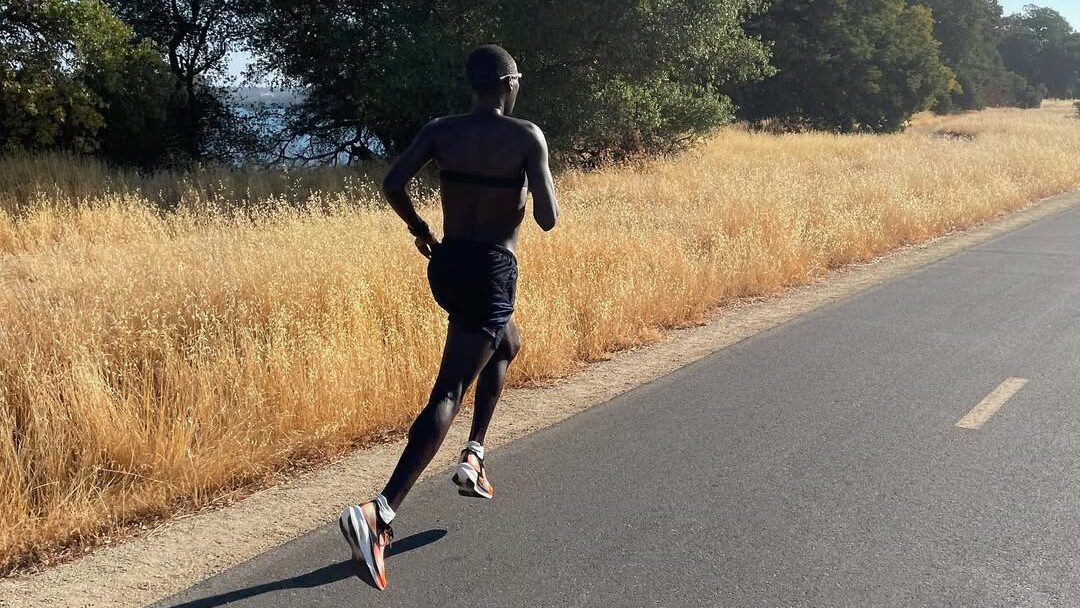
Imago
Shadrack Biwott/ Image via Instagram: skiptoob

Imago
Shadrack Biwott/ Image via Instagram: skiptoob
“EPO use remains a popular method for those looking to cheat, as we have seen by several recent cases. It’s so important to conduct strategic special analysis and blood testing to catch doping and protect clean athletes’ right to a fair playing field,” said USADA CEO Travis T. Tygart while putting a four-year ban on this US track and field athlete. Last year, he had failed to qualify for the Paris Olympics; now, he won’t even get the chance to fight for his place in LA. With such heartbreak, the 40-year-old had a few words.
Watch What’s Trending Now!
In an Instagram post made a day ago, Shadrack Biwott wrote, “Early last year, USADA informed me that a routine drug test from January 25, 2024 showed a positive test result for EPO. I was surprised because I have never taken any performance-enhancing drugs. I’ve spent my career dedicated to the sport both as an athlete and a coach and have never compromised my integrity.” This was just days before the U.S. Olympic Marathon Trials in Orlando, Florida, where Biwott did not finish the race, dropping out after 15 miles. But like he said, he had never taken drugs before, so what did he do?
The long-distance runner explained, “I consulted with doctors and experts to try to understand the erroneous result. Through that investigation, I proved that a blood test on a sample from the same day was completely normal and there were no abnormalities in my Athlete Biological Passport (APB).” This led to a legal battle where the Kenyan-born American, alongside his lawyer, as he captioned, presented these facts during arbitration and expressed his willingness to make his WADA bloodwork and Athlete Biological Passport (ABP) available for public review, stating he has nothing to hide.
ADVERTISEMENT
He said that he feels a responsibility not only to defend his own innocence but also to advocate for those who lack the same resources or opportunities. “I am deeply disappointed in the outcome of my case. I truly believed all the facts would lead to a different result. I take comfort in knowing that I have always believed in a clean sport, hard work, and competing with integrity. I appreciate the support from my family and friends, it means everything,” his statement concluded.
View this post on Instagram
Biwott’s initial urine test at the UCLA Laboratory came back positive for EPO, and later testing of his blood at the SMRTL Laboratory confirmed the same. He asked for a B sample to be analyzed, which again showed a positive result. Even though he questioned the accuracy of the tests, four independent scientists reviewed everything and agreed with the findings, which ultimately led to his suspension. Lately, the US track and field has seen a lot of talk around bans and doping.
ADVERTISEMENT
Bans and doping lately in conversation around US track and field
“Doping coaches should be banned for life from coaching in the sport. Whether you were banned while competing as an athlete or caught distributing as a coach (for some, both). idc idc idc,” declared Gabby Thomas on her social media earlier this month, expressing her frustration with USADA and its disappointing approach to her case in 2020, where she missed the whereabouts drug test three times and was provisionally suspended. Fortunately, she challenged the decision, and the suspension was lifted. Now, another US Olympian is banned for the same thing.
ADVERTISEMENT
Fred Kerley, the US Olympic silver medalist, 2022 world champion, has been provisionally suspended for whereabouts failure. The rule is that athletes must provide updated details of their whereabouts for testing, including a one-hour time slot each day. Three missed tests or filing failures in 12 months count as an anti-doping violation. Though Kerley has failed this, his legal team and he himself have claimed that the track and field athlete did not take any kind of drugs.
Top Stories
Patrick Mahomes’ Dad Faces 10-Year Prison Sentence After Chiefs QB’s Father Reportedly Violated Probation Terms

Prayers Pour In From Jordan Love & Co. as Cowboys Star Mourns Tragic Personal Loss

Justin Jefferson Makes Final Decision on Joining Buffalo Bills After Further Damaging J.J. McCarthy Relationship

Matthew Stafford Makes Final Decision on Retirement After Narrowly Beating Drake Maye For NFL MVP

Multiple PGA Tour Pros Stopped from Playing as WM Phoenix Open Round Is Canceled Over Recurring Problem

PGA Tour Split Into Two as Scottie Scheffler Confirms Stance on Patrick Reed’s Return

Erriyon Knighton is also in similar trouble. In 2024, he faced a doping scare after testing positive for epitrenbolone, a metabolite of trenbolone, which he said came from contaminated meat he ate. An American tribunal accepted his explanation and cleared him of any wrongdoing, letting him compete in the U.S. Olympic Trials and Paris Olympics. Still, the Athletics Integrity Unit and WADA have appealed the decision, so his case is not fully settled, and the legal process is ongoing. All of these cases are equally concerning and call for stricter guidelines. What do you think?
ADVERTISEMENT
ADVERTISEMENT
ADVERTISEMENT